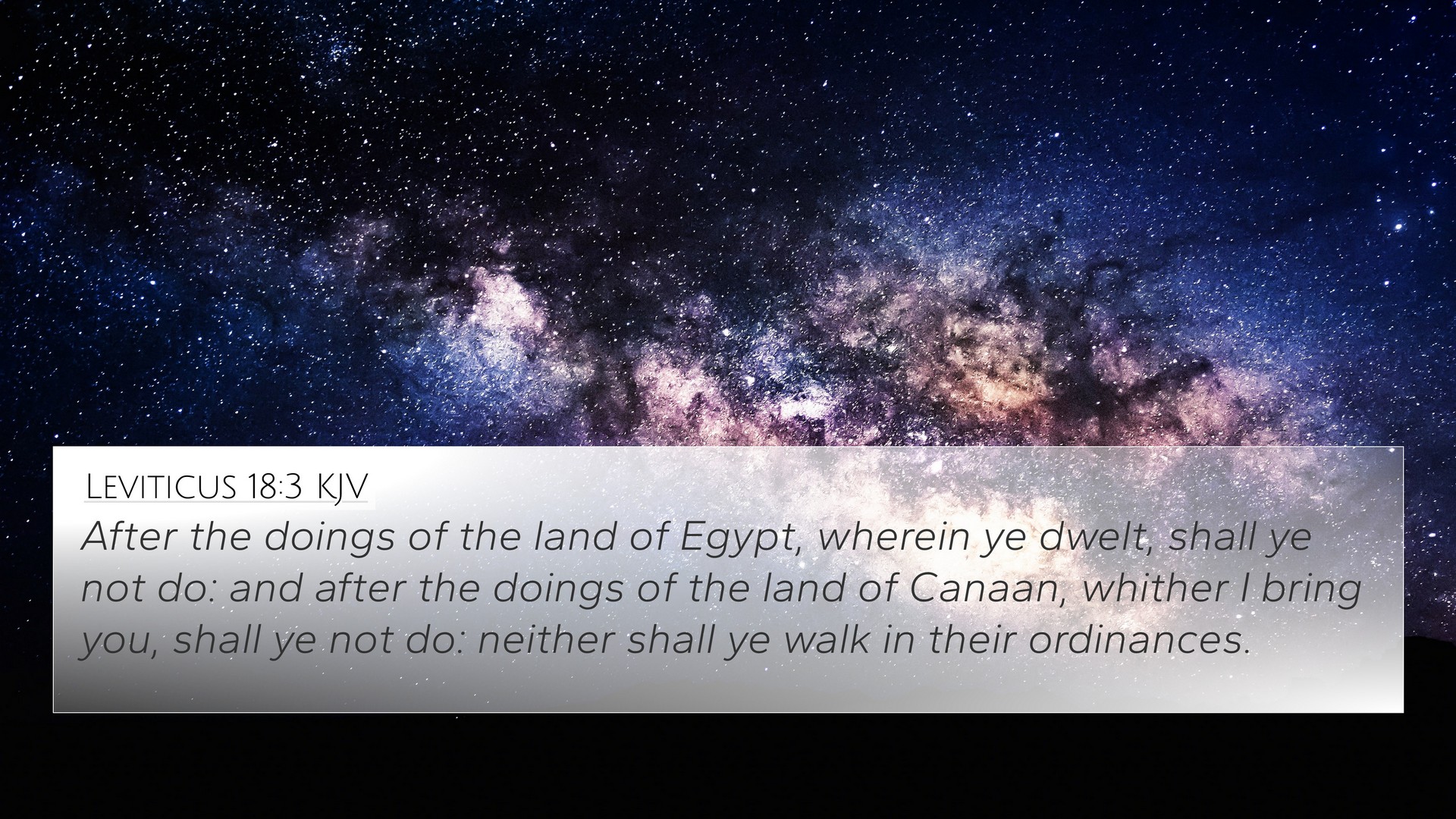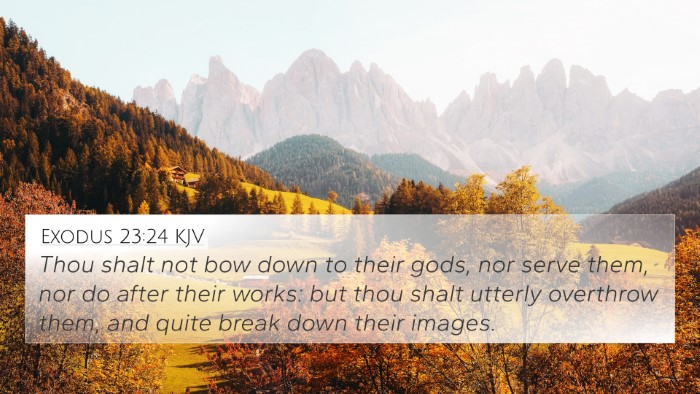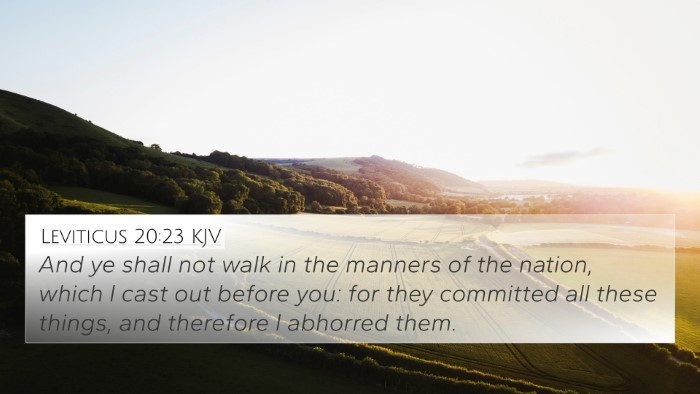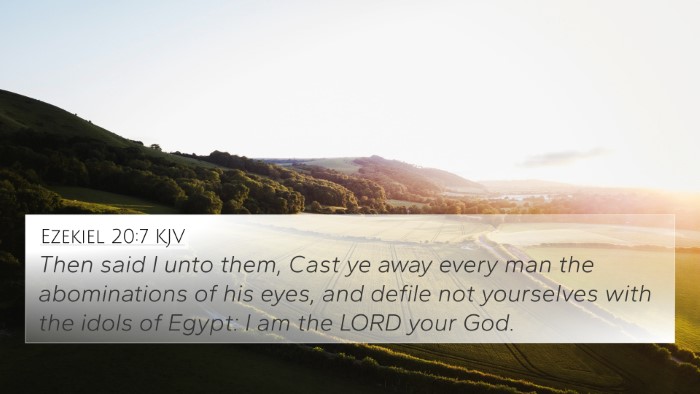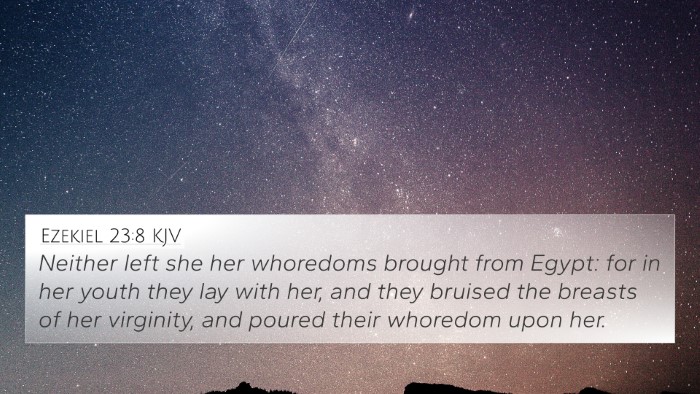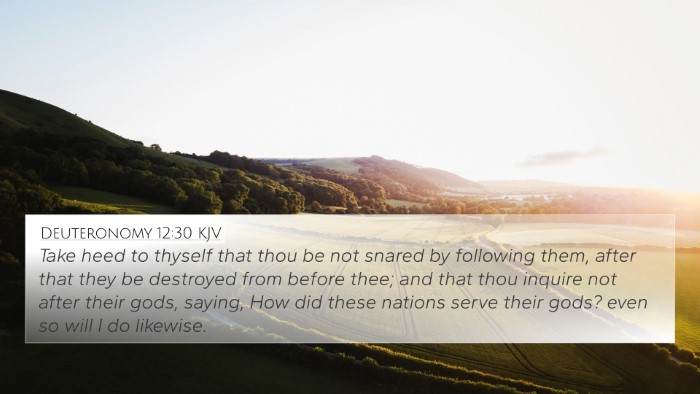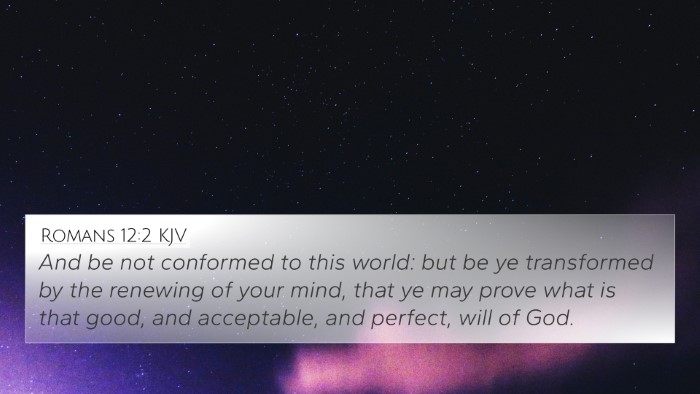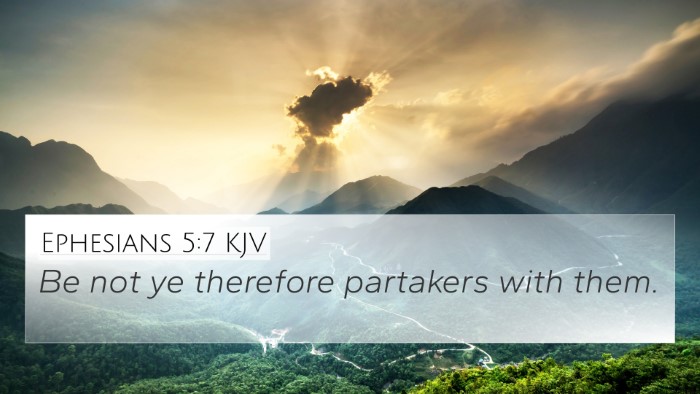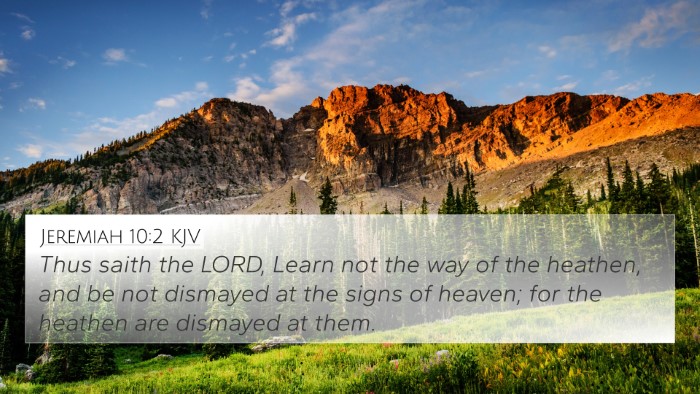Understanding Leviticus 18:3
Verse: "After the doings of the land of Egypt, wherein ye dwelt, shall ye not do: and after the doings of the land of Canaan, whither I bring you, shall ye not do: neither shall ye walk in their ordinances."
Summary and Commentary Insights
This verse serves as a foundational instruction given to the Israelites, setting clear boundaries regarding their conduct and practices as they entered the Promised Land. Public domain commentaries shed light on its implications from various vantage points.
Matthew Henry's Commentary
Henry highlights that this command was divinely instituted to preserve the sanctity of the Israelites. He emphasizes the need for God's people to distinguish themselves from surrounding nations. The command underscores a rejection of Egypt's immorality and Canaan's idolatry, marking a separation that would define their identity.
Albert Barnes' Notes
Barnes elaborates on the rationale behind this prohibition. He suggests that adopting the practices of pagan nations would lead Israel into sin. Following their practices would not only corrupt them morally but also diverge them from God's commandments, thus risking His favor. It's an appeal for holiness and adherence to God's ways.
Adam Clarke's Commentary
Clarke notes the historical context of the command. He views it as a preventive measure against societal degradation. The customs of the surrounding peoples were abominable, including various forms of sexual immorality and idolatry. Clarke underscores that keeping these commandments is crucial for maintaining a covenant relationship with God.
Cross-References to Leviticus 18:3
To enhance the understanding of Leviticus 18:3, here are some pertinent cross-references:
- Exodus 20:3-6: The commandment to have no other gods before Yahweh.
- Deuteronomy 12:29-31: Warning against emulating the practices of other nations.
- Leviticus 20:23: Further prohibitions on following the ways of the nations.
- Romans 12:2: Call to be transformed and not conformed to this world.
- 1 Peter 1:14-16: Admonition to be holy in all conduct.
- Galatians 5:19-21: List of sinful practices to avoid.
- James 1:27: Definition of true religion as keeping oneself unspotted from the world.
Thematic Connections and Applications
The themes explored in Leviticus 18:3 resonate deeply throughout the Scripture, accentuating the importance of separation from sin and the necessity of adhering to divine statutes. Here are some thematic connections:
- Holiness: The call to be set apart as God’s people.
- Idolatry: The danger of acquiring the practices of non-believers.
- Divine Guidance: Understanding God’s expectations for moral living.
- Faithfulness: The commitment to God's laws as essential for blessing.
Practical Applications for Today
Leviticus 18:3 offers timeless truths that can be applied in modern contexts:
- Ethical Living: Encouragement to align personal conduct with biblical standards.
- Culture vs. Faith: Need for discernment in challenges posed by contemporary culture.
- Community Influence: Impact of community standards on individual beliefs and actions.
Tools for Bible Cross-Referencing
Engaging with the Scripture deeply can be enhanced using tools for Bible cross-referencing:
- Bible Concordance: Utilize a concordance to find related passages efficiently.
- Bible Cross-reference Guide: Implement guides for discovering thematic connections.
- Cross-reference Bible Study: Establish a methodology for systematic Bible study using cross-references.
- Bible Reference Resources: Access comprehensive materials for in-depth exploration.
Conclusion
Leviticus 18:3 is not merely a historical command but a call for us to reflect on our values and practices in light of God’s holiness. By understanding this verse in connection with others through cross-referencing, one can gain a richer insight into the nature of God’s expectations of His people, both in ancient times and today.
